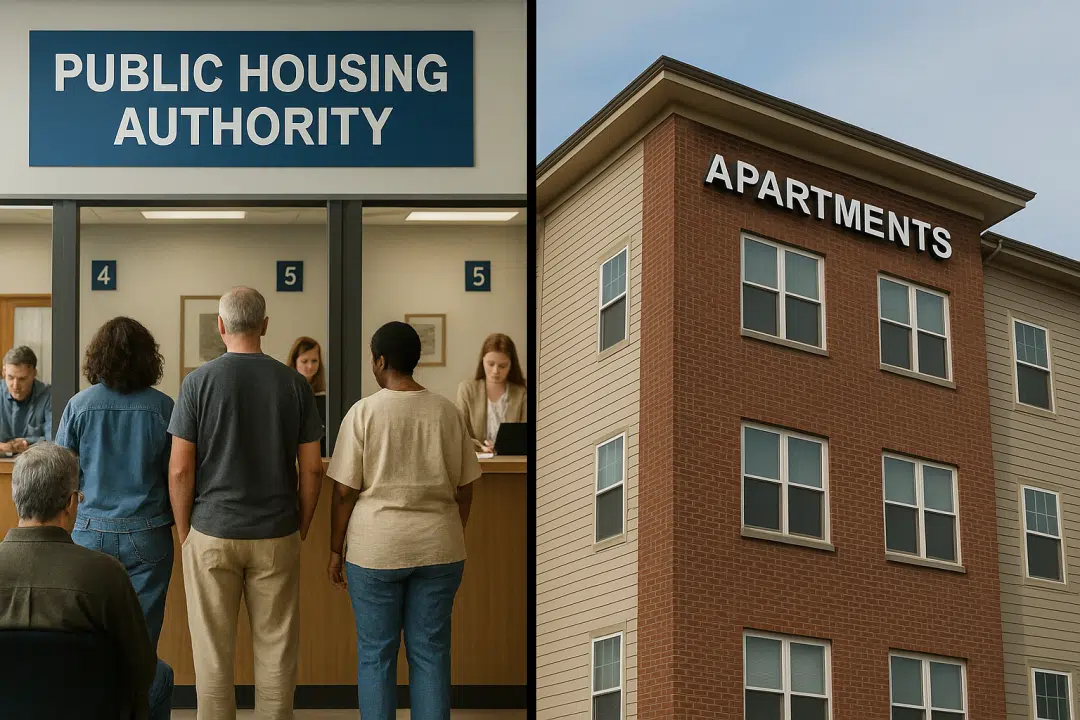
A sweeping proposal from the Trump administration to slash more than $33 billion in federal housing aid has ignited widespread concern from housing advocates, local officials, and families who rely on Section 8 and other rental assistance programs. If enacted, the proposed cuts to the Department of Housing and Urban Development (HUD) would drastically reduce support for low-income households across the U.S.
What’s in the proposal?
The Trump administration’s 2026 budget aims to:
- Cut $33 billion from HUD programs
- Impose a two-year time limit on rental assistance for able-bodied adults
- Shift funding from federal aid to state block grants
HUD Secretary Scott Turner defended the changes as necessary to curb waste and return HUD to its “original purpose”—temporary help. Critics say the plan punishes working families and destabilizes housing nationwide.
Who is affected?
More than 4 million households rely on HUD assistance, including Section 8 vouchers. A report by NYU’s Housing Solutions Lab found:
- 1.4 million households could lose benefits under a two-year cap
- 70% of affected families include children
- Most already receive assistance for more than two years
Single mother Havalah Hopkins of Washington state said she’s terrified of losing the stability she finally secured. “It’s dehumanizing,” she said. “A two-year time limit is ridiculous.”
Local fallout: Atlanta and Texas
In Atlanta:
- Over 11,000 households depend on vouchers
- Atlanta Housing froze rent hikes for contract renewals post-July 1
- Anticipated federal cuts prompted an $80 million budget reduction
Alan Ferguson, outgoing housing officer for Atlanta, warned that without federal support, landlords may exit the program, reducing affordable housing options.
Michael Lucas of the Atlanta Volunteer Lawyers Foundation said the change could push families into homelessness or substandard housing. “There’s going to be even more of a market for the kind of slumlords that Atlantans too often have to endure,” he said.
In Texas:
- High demand already stretches waitlists for public housing
- Brittany King of Dallas says she’d be homeless without Section 8
- Dallas advocates warn the two-year cap won’t allow families time to find stable income or housing
Bryan Tony of the Dallas Housing Coalition stated: “Two years simply isn’t enough. If they lose that assistance, where are they going to go next?”
Why landlords are worried
Landlords accepting Section 8 already navigate rigorous oversight and paperwork. The uncertainty of short-term contracts could:
- Increase turnover and cost
- Disincentivize participation
- Shrink the housing pool for low-income tenants
Denise Muha, executive director of the National Leased Housing Association, said landlords broadly oppose time limits: “Nobody wants to throw out their tenants without cause.”
Is there support for time limits?
Few housing agencies have tested time limits—and most dropped the policy.
- NYU identified just 17 authorities that tried it
- 11 abandoned the initiative due to poor outcomes
- Cities like Keene, NH, found tenants still couldn’t afford rent after time was up
What’s next?
Congressional debates continue. So far, the House budget for HUD omits time limits. The Senate version is pending.
Housing experts and Democratic lawmakers argue the plan won’t save money—it will create chaos.
Rep. James Clyburn (D-SC) said: “This doesn’t help families. It creates financial uncertainty and pushes them into more severe trade-offs.”
If passed, families like Aaliyah Barnes in Kentucky, who just began college while raising her son in subsidized housing, could lose their homes before finishing school.
“I’d be so close, but so far away,” she said.
